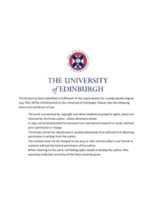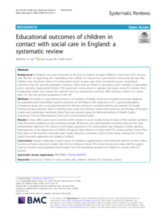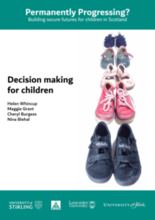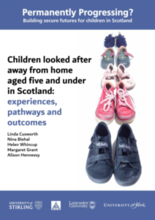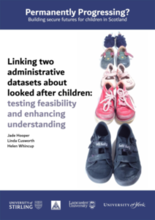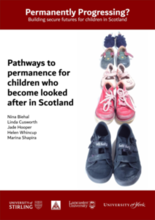Displaying 551 - 560 of 1138
The current study is the first to explore the perspectives of foster carers and clinicians working in Child and Adolescent Mental Health Services (CAMHS) in relation to the use of two brief screening tools: the Strengths and Difficulties Questionnaire (SDQ) and the Brief Assessment Checklists (BACs).
This thesis paper explores (1) how children in care in the UK are making use of mobile communication devices for contact with members of their familial and friendship networks; (2) to what extent devices like the smartphone, tablets and computers either improve or hinder communication; and (3) how contact using mobile communication devices and Internet is being managed by foster carers and social workers.
This open access systematic review aimed to appraise the extant research evidence from longitudinal studies and answer the question: how do educational outcomes differ between children in contact with Children’s Social Care (CSC) and the general population in the UK?
This review aimed to identify, appraise, and synthesize published literature concerned with the reunification of looked‐after children with their birth parents in the United Kingdom
The research presented in this report aimed to broaden and deepen understanding of the barriers and enablers that care experienced students encounter in going to, being at and staying at college and university in Scotland.
This paper is concerned with outcomes for young parents in and leaving care and draws on findings from a post-doctoral fellowship study conducted in Wales.
The Decision making for children report is one strand of the Permanently Progressing? study. In this strand, during 2015-17, 160 decision makers were interviewed across Scotland mainly in groups, but some individually.
The aim of this particular strand of the Permanently Progressing? study was to investigate the experiences, pathways, and outcomes of children who became looked after away from home, together with the factors associated with achieving permanence.
This report on the linkage of Children Looked After Statistics (CLAS) with data from Scottish Children’s Reporter Administration (SCRA) is one strand of the Permanently Progressing? study. The study is the first in Scotland to investigate decision making, permanence, progress, outcomes and belonging for children who became ‘looked after’ at home, or away from home (with kinship carers, foster carers or prospective adopters) when they were aged five and under.
This report presents the findings from strand one of the Permanently Progressing? study, Pathways to Permanence for children who become looked after in Scotland. This strand analysed data from the Children Looked After Statistics (CLAS) provided to the Scottish Government by all 32 local authorities on the total cohort of children who became looked after during the year 1 August 2012 - 31 July 2013 when they were aged five and under

